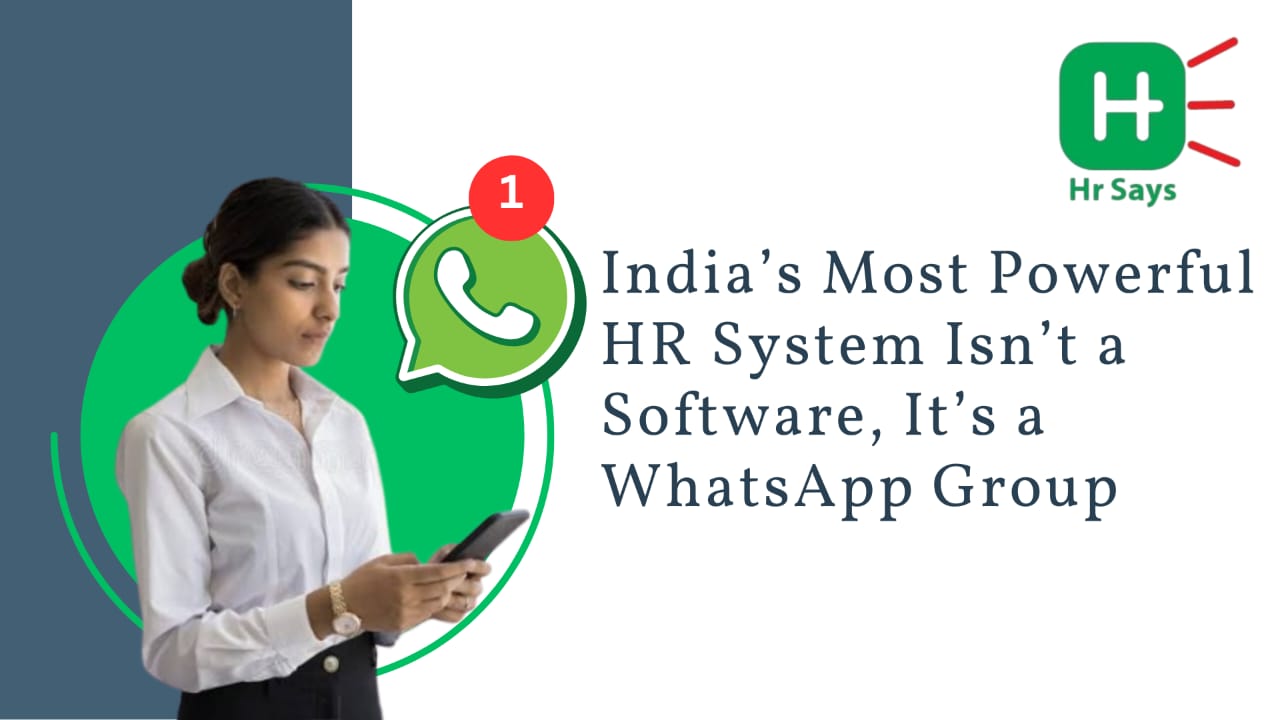In the glossy brochures of HR software, they talk about dashboards, automation, and predictive tools. But behind the scenes, many of us know where the real action happens. Not on a platform with login credentials, but in WhatsApp groups that start buzzing long before the official workday begins. Those group chats which are full of HR managers, CHROs, generalists, recruiters, and consultants are not just background noise. For me, they’ve become my real HR tech stack.
Whenever a new government notification drops, I don’t wait for our compliance team to decode it. Someone from my “HR Updates India” group has already sent a crisp summary with a short note on how it impacts gratuity or bonus. When I need an urgent referral for an HR executive who knows SAP, I don’t spend hours on LinkedIn. I simply message a trusted WhatsApp group, and within minutes, CVs land in my inbox with no sourcing fee, no delay, just real support.
It may sound informal, but it’s effective. In fact, it's more effective than some of the most expensive HR systems I’ve seen. These WhatsApp communities have become an underground HR support system across India. Whether you’re handling payroll, running an employee engagement campaign, or solving a POSH query, there’s always someone out there who’s already done it and is willing to help, instantly and generously.
What makes these HR groups powerful is the mix. You’ll find a VP of HR sitting next to an intern, both sharing job openings, salary benchmarks, and even labor law formats. There’s no ego, just empathy. No rigid SOPs, just practical insights. When an HR manager in Jaipur is stuck with a sudden layoff issue, someone from Chennai sends a sample email. When a new joiner wants to build an HRMS from scratch in a startup, someone from Delhi shares a free template, with tips.
We often celebrate HR digital transformation, but forget that digital doesn’t always mean fancy tools. Sometimes it just means staying connected in real time with people who get your job, your challenges, and your unspoken stress. These groups are more than just information hubs they are emotional support systems. They allow HR professionals to vent, laugh, cry, and brainstorm without fear of judgment.
And let’s not forget how resourceful they are. You’ll find real time salary surveys, offbeat retention ideas, festival celebration hacks, and honest vendor reviews all in a chat that takes seconds to scroll. There’s speed, there’s depth, and there’s no login timeout. It’s not about replacing official HR tech, but about acknowledging the parallel tech stack we actually rely on. And this one runs on goodwill.
The irony is that while we train employees to use official HRMS portals and payroll apps, most of our own decisions come from inputs that begin with “someone just shared in the group…” And that's okay. Because HR, at its heart, has always been about people helping people. These WhatsApp networks simply bring that spirit alive instantly, informally, and impactfully.
In India’s diverse and rapidly changing HR landscape, WhatsApp groups are filling the gap between theory and reality. Between process and instinct. Between compliance and compassion. These digital backchannels are often where new policies are born, where best practices are exchanged, and where careers quietly find their next breakthrough.
If you're an HR professional and you're not part of at least three active WhatsApp groups, you’re probably missing out on India’s most agile, human, and hyperlocal HR tech ecosystem. These informal HR communities have quietly become the pulse of the profession, the real HR network that works when everything else slows down.
At HRsays, we believe in celebrating not just the technology behind HR, but the humanity that powers it. We’re building a space where these real conversations, local learnings, and shared experiences have a place to shine openly and proudly. Because if HRs are getting work done at midnight through a forwarded voice note from a group called “HR Ninjas,” it deserves to be part of the real story.
So here’s a thought: what if we stop hiding our reliance on these WhatsApp communities and start honouring them as the grassroots tech they really are?

 These informal HR communities have quietly become the pulse of the profession, the real HR network that works when everything else slows down.
These informal HR communities have quietly become the pulse of the profession, the real HR network that works when everything else slows down.








.jpeg)
.jpeg)

.jpeg)





.jpeg)



.jpeg)

.jpeg)



